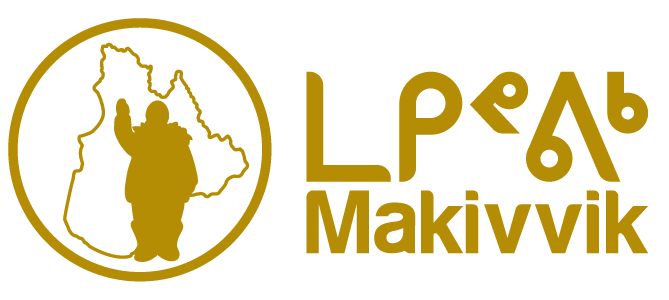Québec, December 9, 2013 – The Makivvik, the Kativik Regional Government (KRG) and the Québec government have reached an agreement on increased funding to mitigate the effects of the high cost of living on Nunavik residents. “Over the next three years, these measures will direct more than $33 million towards reducing the cost-of-living inequities faced by Nunavimmiut”, declared Makivvik President Jobie Tukkiapik and KRG Chairperson Maggie Emudluk.
 Currently, $5 million annually is injected into six regional cost-of-living measures. As of April 2014, Québec will invest additional amounts of $5 million (2014–2015), $6 million (20152016) and $7 million (2016–2017), thereby raising the cost-of-living subsidy for Nunavik from $15 million to $33 million for the next three years.
Currently, $5 million annually is injected into six regional cost-of-living measures. As of April 2014, Québec will invest additional amounts of $5 million (2014–2015), $6 million (20152016) and $7 million (2016–2017), thereby raising the cost-of-living subsidy for Nunavik from $15 million to $33 million for the next three years.
Québec has also announced that it will double the overall value of the northern village portion of the refundable Solidarity Tax Credit for individuals living in Nunavik, by increasing the amount per eligible adult to $1620 beginning in 2014, plus indexation annually thereafter. This action is expected to bring Québec’s total future investment in the northern village portion of the Solidarity Tax Credit for Nunavimmiut to approximately $7 million in the first year.
The KRG and Makivvik will use the cost-of-living subsidy to implement new measures or improve existing measures for elders, country and store-bought food, personal care and household products, as well as gasoline, vehicles and equipment for subsistence harvesting. “The measures will promote healthy lifestyles that take into account our Inuit traditions and culture, and the refundable Solidarity Tax Credit will target the most disadvantaged, explained KRG Chairperson Maggie Emudluk”.
A long-term agreement to reduce the high cost-of-living in Nunavik is essential to improve the quality of life of Nunavimmiut. To that end, a two-year study will be carried out and will provide an in-depth analysis and evaluation of Inuit consumer patterns. “On completion of the study and before the end of the current agreement, Makivvik, the KRG and the Québec government will undertake discussions to define effective and long-lasting solutions to the cost-of-living in Nunavik.”, concluded Makivvik President Jobie Tukkiapik.
Québec and Nunavik Inuit have been working together to reduce the high cost of living in the region for more than 20 years. In 1998, a refundable tax credit for individuals living in a northern village was introduced and in 2011 it was folded into the Solidarity Tax Credit. An annual subsidy for regional cost-of-living reduction measures was first put in place in 2007. Québec’s commitment to these additional measures are the result of a meeting between Québec Premier Pauline Marois, Makivvik President Jobie Tukkiapik ,KRG Chairperson Maggie Emudluk and other Nunavik elected officials on June 21, 2013, National Aboriginal Day. In addition to discussions on the high cost of living, the meeting served to reaffirm Québec and Nunavik’s nation-to-nation relationship.
-30-
Information:
Angela Petru
Communications Coordinator
Kativik Regional Government
Tel. 819-964-2961, ext. 2317
media@krg.ca
www.krg.ca
Kitty Gordon
Communications Agent
Makivvik
Tel. 514-745-8880, ext. 215
kgordon@makivik.org
www.makivik.org
The KRG is a non-ethnic public organization created in 1978, under the James Bay and Northern Québec Agreement. The organization has jurisdiction over nearly the entire territory of Québec north of the 55th parallel in areas such as municipal matters, transportation, the environment, policing, employment, labour training, income security, childcare services, renewable resources, land-use planning, civil security and economic development.
Makivvik is the development corporation mandated to manage the heritage funds of the Inuit of Nunavik provided for under the James Bay and Northern Québec Agreement. Makivvik’s role includes the administration and investment of these funds and the promotion of economic growth by providing assistance for the creation of Inuit-operated businesses in Nunavik. Makivvik promotes the preservation of Inuit culture and language as well as the health, welfare, relief of poverty, and education of Inuit in the communities.

